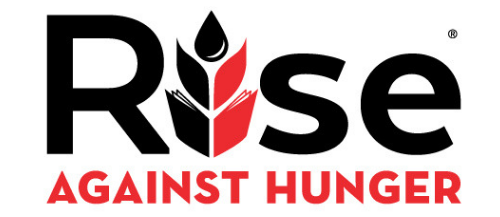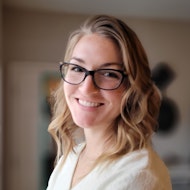Making Learning Fun: Check Out Our Interactive Agriculture Workshop in Mali

Have you heard of Elevating Women and Youth Farmers, the sustainable agriculture project we’re implementing with partner AMEDD in Mali? If you haven’t, let me tell you more! Agriculture is the basis of many livelihoods in Mali, and more than 50% of the agricultural labor force are women and youth. However, they face challenges with access to land and livestock and knowledge of climate-smart agriculture techniques. The Elevating Women and Youth Farmers project addresses these challenges. The project focuses on providing training on agriculture, nutrition, livestock, money management and more for at-risk women and youth farmers in Mali’s Sikasso and Segou regions. Through these project trainings and activities, it aims to improve food security in these regions.
An important part of our project’s implementation is traveling to the communities to meet with our partners that work directly with participants; this support’s the project’s effectiveness as progress toward the long-term goals is made. As Rise Against Hunger’s Nutrition Technical Advisor, I had the pleasure of going to Mali in January this year to conduct a Training of Trainers workshop with our partner AMEDD. It was well attended by members of the Ministry of Health, leaders in the National Nutrition Technical Working Group, government extension agents and members of the AMEDD project team. This is important because the more buy-in on these practices and techniques there are, the higher chances of lasting implementation and community impact.
The workshop focused on training people to become trainers, enabling them to then be able to train participants on how to manage their land and improve their livelihoods. Training topics included how to establish a keyhole garden, soil health, manure making, mulching, companion planting, nutrition, the malnutrition problem tree, food and the body, food groups and building a meal, nutrition across the lifecycle, and nutrition and agriculture integration. In addition, participants were taught how to create a seasonal food availability calendar to help plan meals that incorporate locally available foods. This training provided participants with the knowledge and skills needed to promote sustainable agriculture and improve nutrition outcomes in their communities.
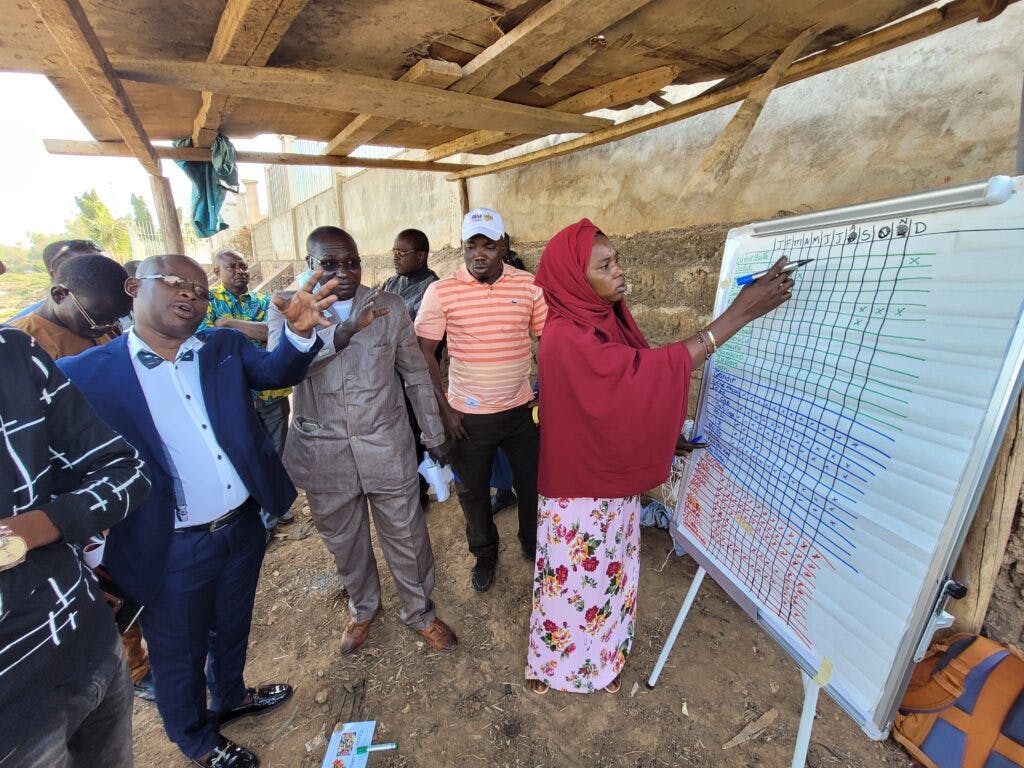
During the workshop, my colleague Bryan Pride, Rise Against Hunger’s Director of Technical Programs, and I split the days between focusing on gardening in the morning and focusing on nutrition in the afternoon. We integrated nutrition and agriculture concepts to make learning practical. For example, Bryan demonstrated how to build a keyhole garden. A keyhole garden — a “no digging” garden — combines composting and gardening in the same place with the benefit of feeding the soil. Keyhole gardens can be built on any type of soil in a variety of weather conditions, making these types of gardens a great option in Mali to enable farmers to grow food year-round. As Bryan demonstrated how to build a keyhole garden, he went through each ingredient of the garden bed and discussed how they promoted soil health — like sorghum stalks for phosphorus, eggshells for calcium and charcoal for moisture retention. (Watch the keyhole garden being established here!)
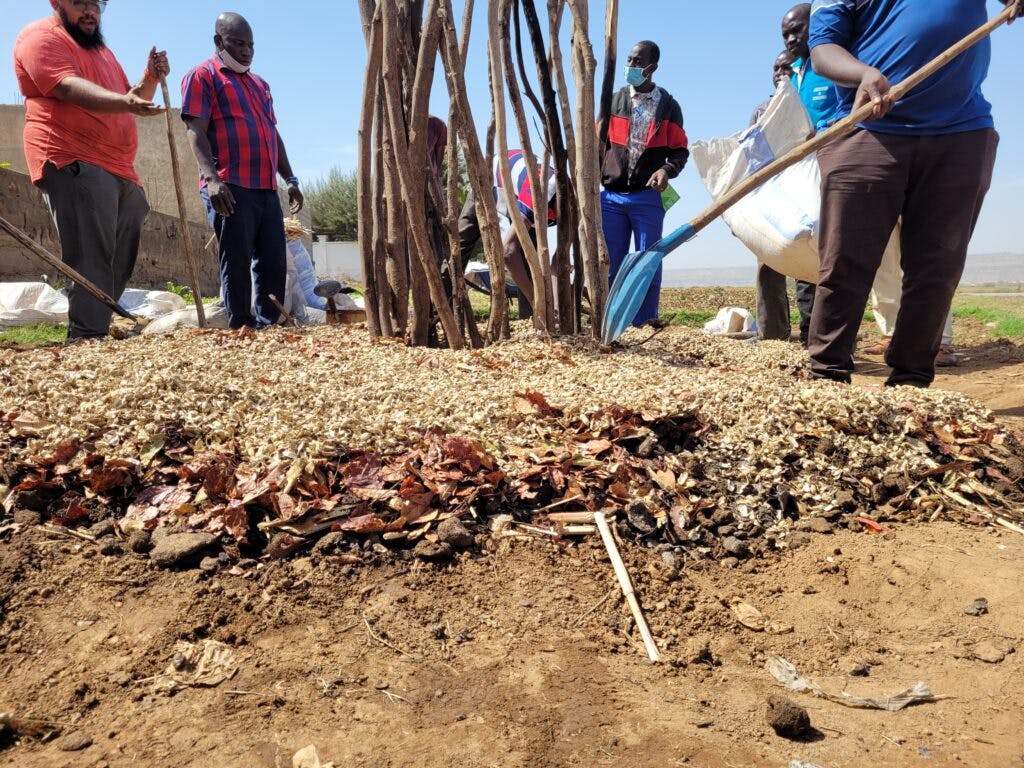
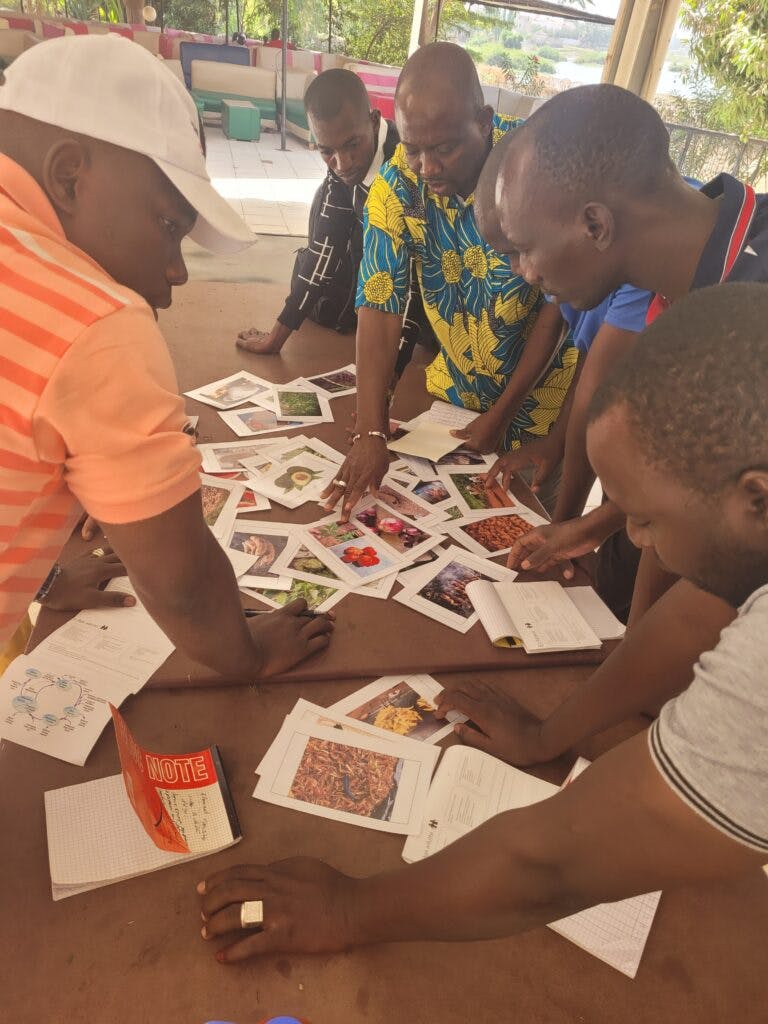
In the afternoon, I conducted games and activities where participants had to build meals using nutritiously diverse foods represented by food cards. We also used a life-size body poster that showed the foods that impacted specific body parts to explain the food’s functions. This included fish for brain health, eggs for muscle health and vegetables for skin health. Through these activities, participants drew similar connections between body health and soil health, appreciating the importance of diversity for both.
We focused on keeping participants actively engaged through games, group work, guided discussions, visuals and tangible objects. This is the HOW of what we do. We spend many hours planning HOW we will conduct our training sessions, thinking through the group dynamics, room layout, individual capacities and energy levels. Conducting a training in a dark room with an eight-hour PowerPoint wouldn’t be successful for the retention of information, so we try to make learning practical, engaging and enjoyable.
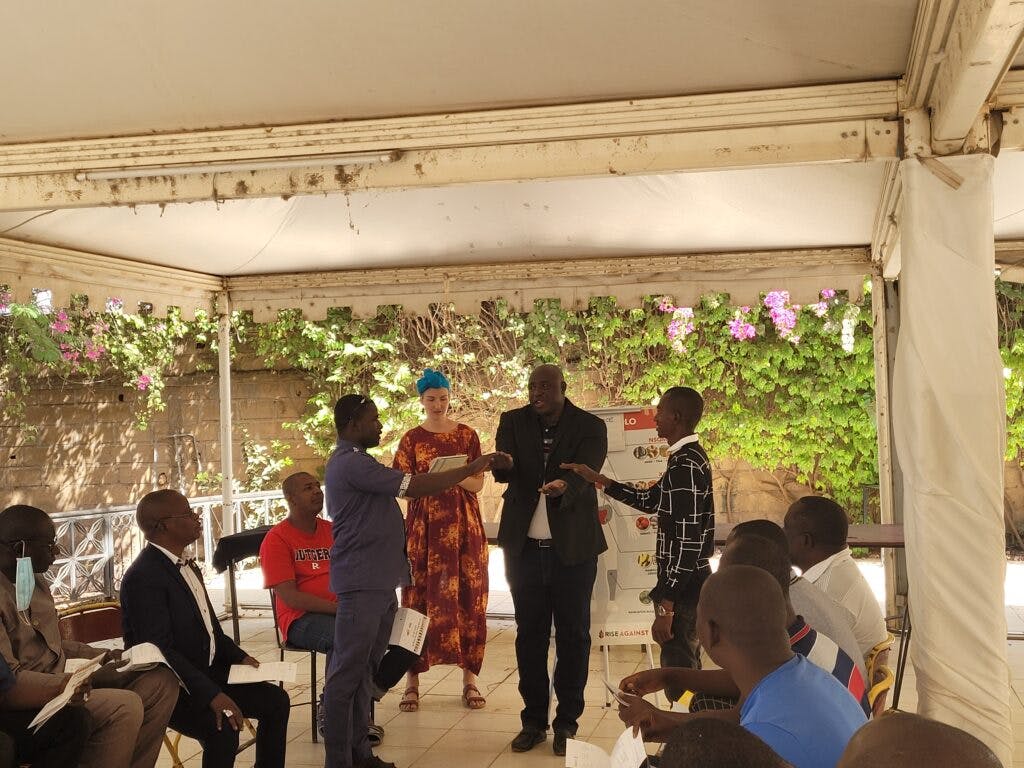
In the second week of training, Joseph Onuche, our Monitoring & Evaluation Manager, then went into the communities to work directly with AMEDD on data collection techniques, survey creation and analysis and more.
To underscore the importance of this site visit, the feedback we received from the participants was amazing! One of the Ministry of Health agents in attendance said, “I have attended many training sessions from various organizations, but this was the most engaging and practical I have ever seen.” A health extension agent also shared, “These tools and activities are practical and can easily be conducted in the communities.” Through Joseph’s work on data collection, we also strengthened our partnership with AMEDD; they expressed a wish for Joseph to stay another six months!
Since the site visit in January, the AMEDD team has already started to incorporate some of the workshop’s learnings and tools as we continue with a five-year extension of the Elevating Women and Youth Farmers project. I can’t wait to see the project’s progress, and I hope you’ll stay tuned as we share more in the future!
Interested in learning more about how we work? Read about our model here!
